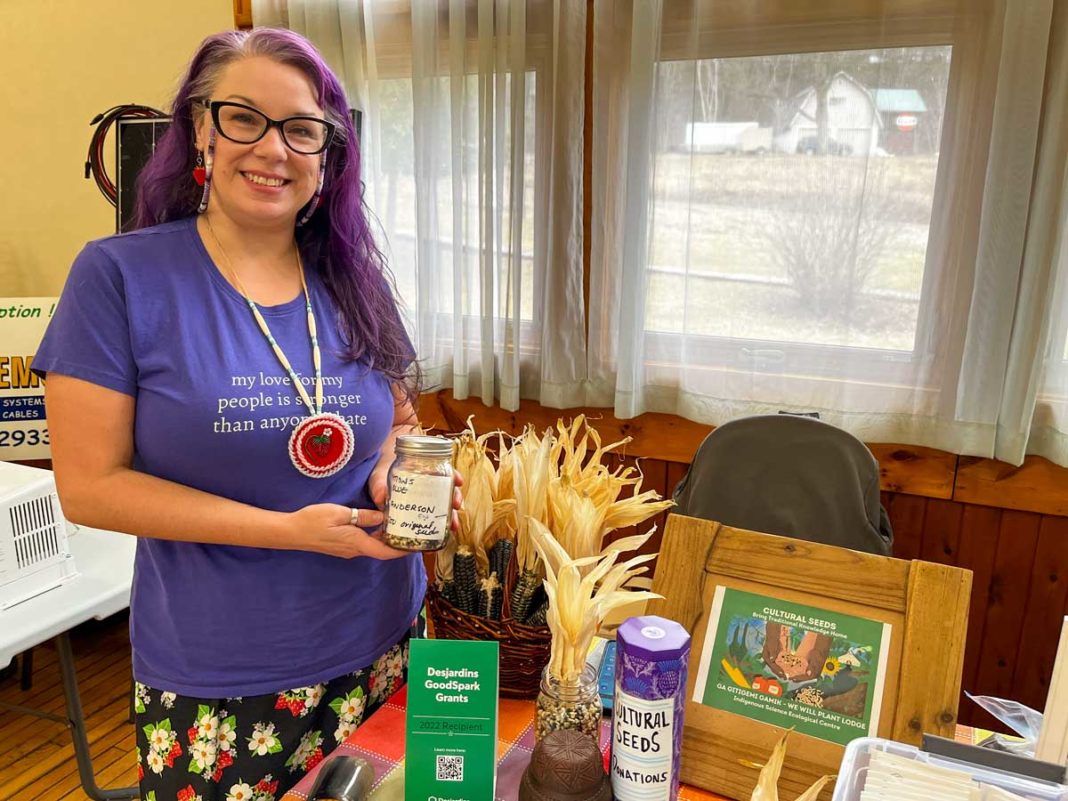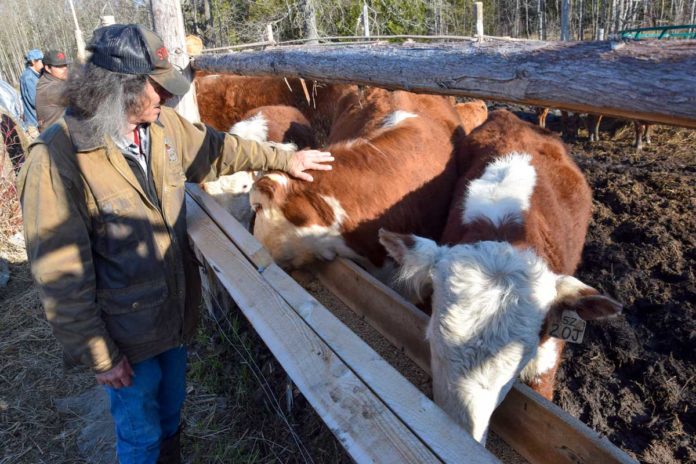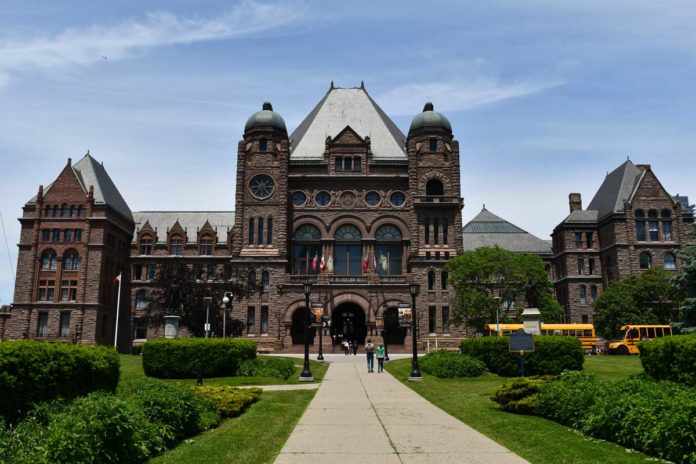Ice Lake property will host We Will Plant Lodge
ICE LAKE—Celeste Smith holds up a jar of seeds. “These are the original seeds from my great aunt,” she says. “They’re a rare blue corn, called flint corn.” There are only five or six people who have seeds for this traditional Haudenosaunee corn. This corn has thousands of years of history behind it, and it’s critically endangered. Those seeds changed the course of Ms. Smith’s life and brought her to Manitoulin Island, where she has begun developing Ga Gitigemi Gamik (We Will Plant Lodge), a project like no other in Canada.
Ms. Smith was going to be a lawyer and work for Indigenous human rights at the United Nations. She was attending law school at Columbia University when her great aunt passed away. Her great aunt was a seed keeper. “The responsibility falls to the family to keep the seeds alive for other generations,” she said. “Because I was in university, I missed so much of my great aunt’s teachings and the chance to learn from her. I really felt that. It hit me hard.”
It was a pivotal moment. At that point, she could continue going to school to learn about protecting Indigenous human rights, or she could go put what she knew into practice. “What am I saving, if everything is disappearing?” she asked herself.
She left her studies and moved to Manitoulin Island, urged on by her good friend Shirley Cheechoo (Ms. Cheechoo now sits as an advisor in her seed circle). “I got settled in and I began growing corn.”
She has added to the seeds in the jar. There are thousands now, enough to start giving seeds to other farmers, which will hopefully lead to a healthy population of this corn in three to five years. She wants to start rematriating it for Indigenous farmers to grow. “That’s what we have to do,” she says. “Save the seeds and pass them on.”
She points out she used the word rematriation, not repatriation. “It’s all about rematriation. It’s women who hold the knowledge. They have it inside them. They just need to reawaken it.”
Traditionally, Indigenous women were both seed holders and holders of the land, she says. “It’s men who farm now, and men who hold the land. That’s taken a lot of identity away from Indigenous women. If we can give that power back to women, that’s healing.”
Once she started doing this, she realized it was bigger than her, that there were others that needed this knowledge. “I realized that this had filled a hole for me, by going back to my roots,” she said. “This knowledge needs to be shared with all Indigenous women, really. I’m going to get the Indigenous seeds back into the hands of Indigenous folks. But not only do we not have the seed knowledge, but we have lost the agricultural knowledge as well.”
So began her big project.
“There’s no other project like this in Canada. It’s a national project. It’s going to be international. I’m using my work at United Nations and what I learned from Columbia. We will be hosting people from all over the world. We’re going to recreate a food web that’s been destroyed because we’ve become completely dependent on colonial systems. We’re started to reclaim it with hunting and gathering but not so much with agriculture,” she says.
Everywhere she goes, she meets women who aren’t connected to land, and access to land is the number one problem, she says. “There’s a huge part of our identity missing and that’s created many health issues. There are people that are not even connected to our medicines, or don’t even have access to seeds.”
Ms. Smith has partnered with Chuc and Linda Willson, familiar to Islanders for Our Garden products and as leaders of the Western Manitoulin Community Garden, among other things. The Willsons have offered a partnership with their land at Ice Lake for We Will Plant Lodge. It’s an amazing land-sharing story that needs to be told, she says.
“How do we help with economic reconciliation? It’s nice to have apologies but at the end of the day, we need to have the land. So much can happen when you look at reconciliation as action and not as a problem.”
The National Farmers Union is helping get the project off the ground and to make it a land trust, and there are a number of other partners and supporters, including Noojmowin Teg Health Centre, The Fireweed Fellowship, Ecological Farmers Association of Ontario, Conservation through Reconciliation Partnership, Indigenous Innovation Initiative, Ontario Council for International Cooperation, Manitoulin Climate Collaborative (MC2) as well as Ms. Smith’s Cultural Seeds. She has recently been awarded a Desjardin GoodSpark grant for the project as well.
She envisions the project as “an ecological centre on a permanent Indigenous-stewarded site, where women and 2SLGBTTQQIA+ persons can work on the land together in a 12-week immersion program that will help them (re)learn ancestral agricultural methods lost to colonization.
“It’s going to be amazing,” Ms. Smith says. “We’re starting to build this spring. It will be small at first, but we have really huge plans. It’s exciting and that’s what keeps us going.”
The site is located in the orchard area at the Willson’s RavensWing property. There will eventually be a ceremonial lodge, an outdoor gathering space where the washing, drying and harvesting of plants takes place, a food forest, a four-season off-grid greenhouse, classrooms, an office and tiny, sustainable homes where participants can stay while they learn. The greenhouse location is staked out, as is the driveway. They’re waiting on permits to begin work on the culvert.
We Will Plant Lodge will also be a source of plants for other communities who can’t grow their own plants using all traditional heritage seeds. “Once we’re up and running, we can start providing a lot more plants going to communities. Not everyone has access to greenhouses and community gardens. That’s why we’re here,” says Ms. Smith.
She points to her earrings, her necklace and her ribbon skirt. “I am wearing strawberries today,” she says. “In my culture, strawberries mean peace and to me, peace means reconciliation. In June the strawberries come out after a long winter. We come together and drink strawberry juice in the spirit that we’re going to forget what’s happened between us in the past, so we have that reminder as a basis in everything. I’m hoping this can happen with this project. This will be open to the public and people can learn.”
“The strawberries are a reminder of what I’m doing this for,” she continues. “I’ve been doing this project for almost two years now and I’m just starting to get grants. It’s really been a labour of love. It’s hard to create something that’s never been done before. It takes a strong will. That’s what this journey is all about, and it all started with a seed.”





